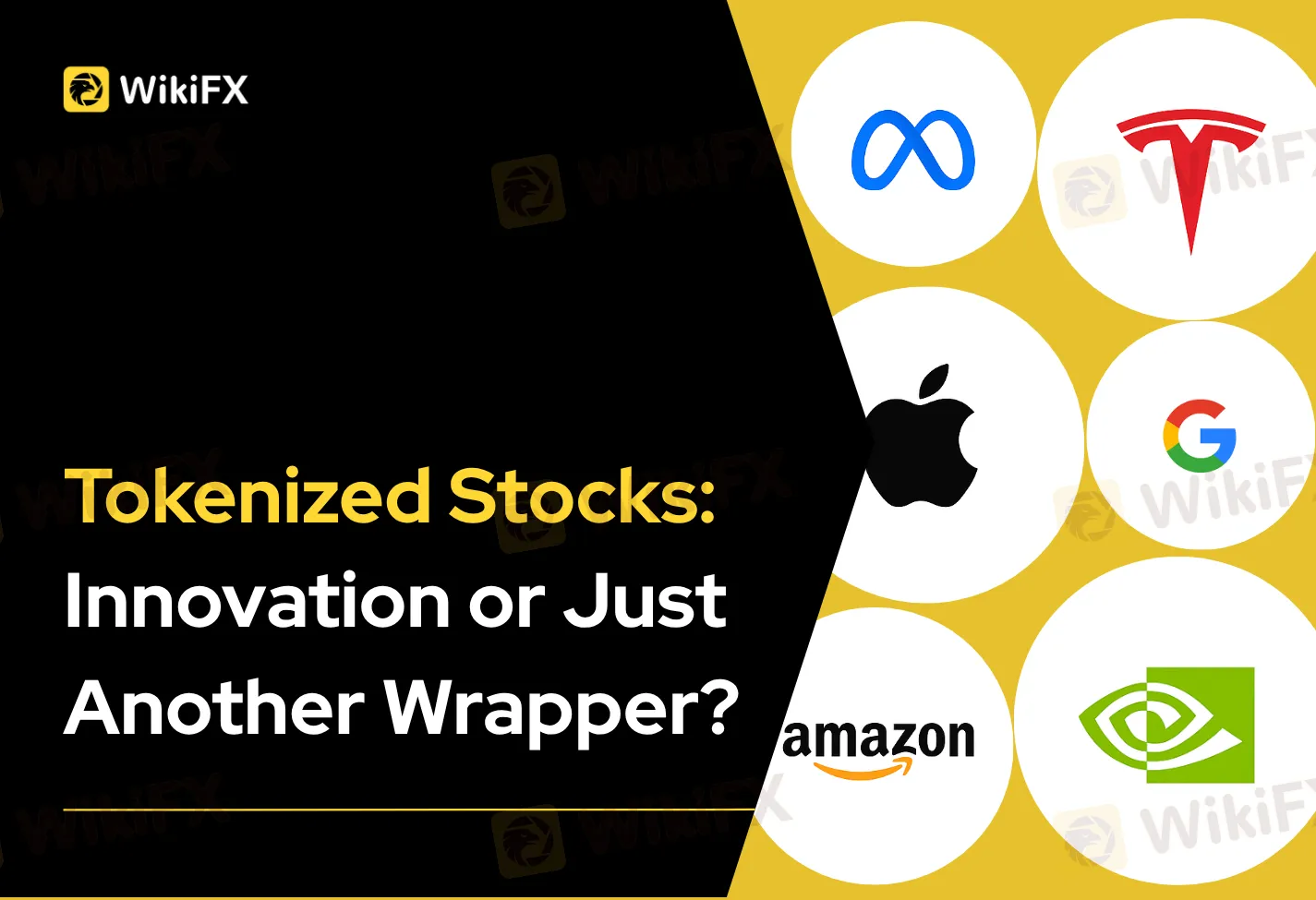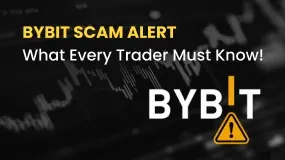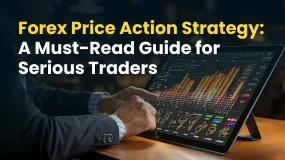简体中文
繁體中文
English
Pусский
日本語
ภาษาไทย
Tiếng Việt
Bahasa Indonesia
Español
हिन्दी
Filippiiniläinen
Français
Deutsch
Português
Türkçe
한국어
العربية
Tokenized Stocks: Innovation or Just Another Wrapper?
Abstract:While tokenized stocks promise global, round-the-clock trading, many platforms only offer synthetic exposure similar to CFDs. Without shareholder rights or deep liquidity, their added value remains in question.

Tokenized stocks are gaining momentum as platforms like Robinhood, Kraken, and Bybit offer synthetic equity assets to users outside the United States. These blockchain-based tokens track the value of real-world shares, promising benefits like 24/7 trading, instant settlement, and fractional ownership. However, beneath the surface of innovation lies a familiar structure—one that closely resembles Contracts for Difference (CFDs), raising questions about whether tokenized stocks offer any real advantages over existing products.
The Real Value Proposition—And Its Limits
Tokenized stocks are structured to mimic real equities through custodians or special-purpose vehicles holding the underlying shares. This approach enables users to gain exposure to companies like Tesla or Apple without owning the stock directly. Supporters hail this as a revolutionary step toward democratizing access to U.S. capital markets, particularly in Europe where regulation is more accommodating. Robinhood, for instance, has launched over 200 tokenized stocks in Europe on Arbitrum, while Kraken and Bybit partner with Swiss-based Backed Finance to issue Solana-based tokens.
But critics argue that the core offering—price exposure without ownership rights—is not new. CFDs have offered similar features for years, including leverage, small trade sizes, and quick access. Tokenized stocks may simply be “a wrapper,” says Freedx executive Anton Golub, offering no shareholder rights, such as dividends or voting power. In this light, the promise of “democratization” may feel more like a marketing strategy than a structural breakthrough.
Liquidity and Compliance: The Achilles Heels
Despite the hype around 24/7 markets, liquidity is still a problem. Market makers cannot hedge risk during weekends or holidays, meaning traders are often quoted wide spreads with questionable execution quality. Furthermore, since most platforms exclude U.S. users, global adoption remains fragmented. The lack of interoperability with traditional exchanges also limits arbitrage, restricting price efficiency.
Compliance is another hurdle. Many of these platforms operate outside the U.S. due to regulatory uncertainty. In contrast, Coinbase is attempting to launch tokenized stock trading within the U.S. under SEC oversight, hoping to pave a more compliant path. Without regulatory clarity, however, tokenized stocks remain largely confined to specific jurisdictions, limiting their long-term potential.
Conclusion
Tokenized stocks represent an interesting evolution in fintech, blending blockchain technology with traditional financial instruments. Yet, for all the talk of innovation, they currently replicate many features of CFDs without providing true equity ownership. Until regulatory frameworks mature and platforms solve liquidity and governance challenges, tokenized stocks may remain a niche alternative rather than a game-changer in global markets.
Disclaimer:
The views in this article only represent the author's personal views, and do not constitute investment advice on this platform. This platform does not guarantee the accuracy, completeness and timeliness of the information in the article, and will not be liable for any loss caused by the use of or reliance on the information in the article.
Read more

Philippine SEC Blocks Unregistered Crypto Exchanges ISPs Nationwide
Philippine SEC enforces new CASP Rules, prompting major ISPs to block access to unregistered crypto exchanges and raising concerns on internet censorship.

Bybit Scam Alert: What Every Trader Must Know!
The cryptocurrency trend is still growing and isn’t going away. More people are investing every day, hoping to profit from this fast-moving market. But opportunity comes with risk. If you want to start trading, make sure you choose a broker that is safe, licensed, and transparent. Remember, if you fall for the Scam brokers like Bybit, they could steal your money. Learn why Bybit is not a safe choice before you invest.

Is TD Ameritrade Safe? How to Spot Fake URLs and Stay Protected
Is TD Ameritrade safe? Learn how to avoid fake URLs and protect your investments with our expert guide on spotting phishing scams.

Forex Price Action Strategy: A Must-Read Guide for Serious Traders
Seeking a successful run in forex trading? You need to master the forex price action strategy. Many of your fellow traders are using it to continue earning profits in a volatile market environment. Price action in trading analyzes the performance of a currency pair and provides hints about its potential future direction. If you find that the currency pair price is likely to surge in your price action analysis, taking a long position is advised. If it suggests a price fall, consider taking a short position.
WikiFX Broker
Latest News
XS.com Broker Partnership Expands Liquidity with Centroid Integration
EC Markets: A Closer Look at Its Licenses
Housewife Scammed of RM68,242 in Online Investment Scam
From Charts to Profits: Unleashing the Power of Forex Trading Tools
FCA Publishes New Warning List! Check It Now to Stay Safe
Beware of Fake RS Finance: How to Spot Scams
Fortune Wave Solution: SEC Warns of Investment Scam
D. Boral Capital agrees to a fine as a settlement with FINRA
Is TD Ameritrade Safe? How to Spot Fake URLs and Stay Protected
Before You Trade with Quest: 6 Warning Signs to Know
Currency Calculator


